News Articles

Researcher at the University of Pennsylvania’s School of Veterinary Medicine Named Winner of 2024 Zoetis Award for Veterinary Research Excellence
Mary A. Robinson, VMD, PhD, DACVCP, University of Pennsylvania School of Veterinary Medicine (Penn Vet) assistant professor of Veterinary Pharmacology and director of the New Bolton Center Equine Pharmacology Research…
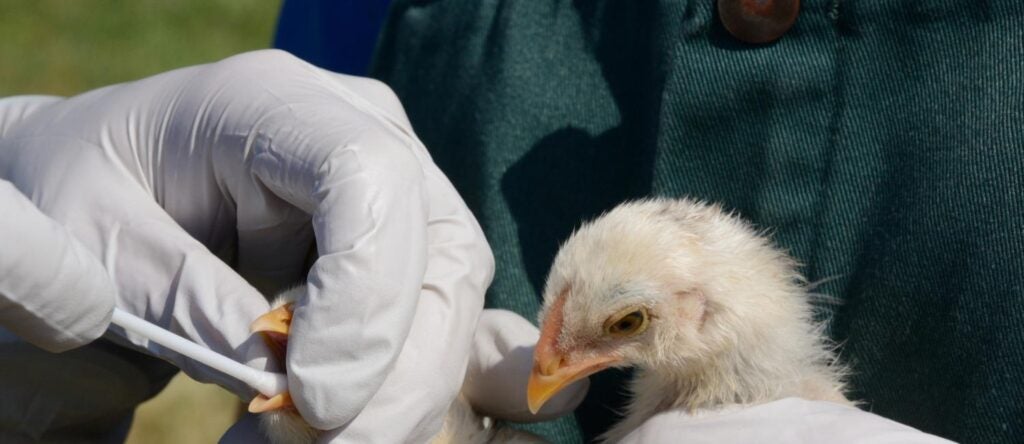
What to know about the current avian influenza outbreak (link is external)
Louise Moncla and Aliza Simeone of Penn Vet and Kathleen Hall Jamieson of the Annenberg Public Policy Center share helpful information for the public.

An integral T cell pathway helps regulate female gene expression (link is external)
Penn Vet researchers have revealed a connection between NF-κB signaling pathways and X chromosome inactivation, which has implications for understanding sex-based immune responses during infection.

Penn Vet and Penn Medicine Researchers Receive Nearly $6 Million in Renewed NIH Funding to Study Epigenetics of Reproduction in Animals and Humans
A multidisciplinary group of researchers from the University of Pennsylvania’s School of Veterinary Medicine (Penn Vet) and the University’s Perelman School of Medicine (Perelman) have received $5.95 million in renewed…
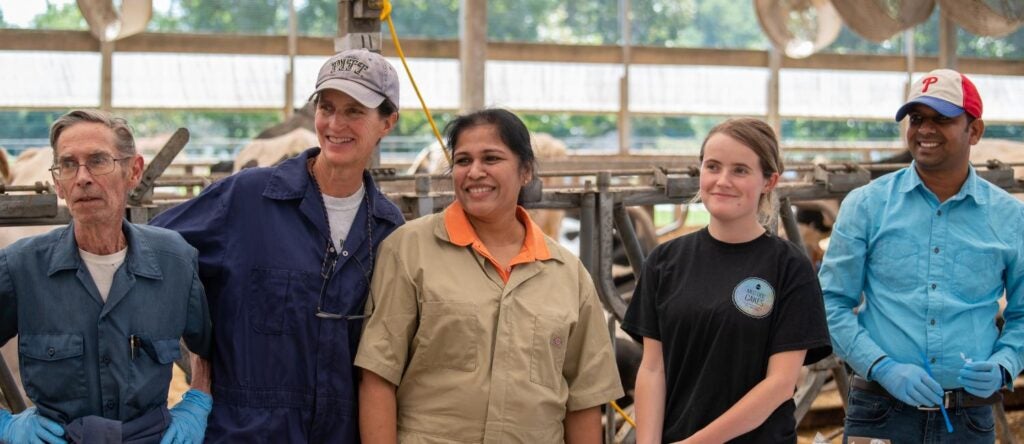
Understanding how a red seaweed reduces methane emissions from cows (link is external)
Methane emissions from livestock are a leading contributor to climate warming. In a collaborative study testing the diets of cows, Dipti Pitta (pictured) and Nagaraju Indugu of the School of…

A hopeful time for Cryptosporidium research (link is external)
Boris Striepen of Penn Vet organized the First Biennial Cryptosporidium Meeting, bringing together researchers and clinicians from around the world to discuss the problems and progress around the parasite and…
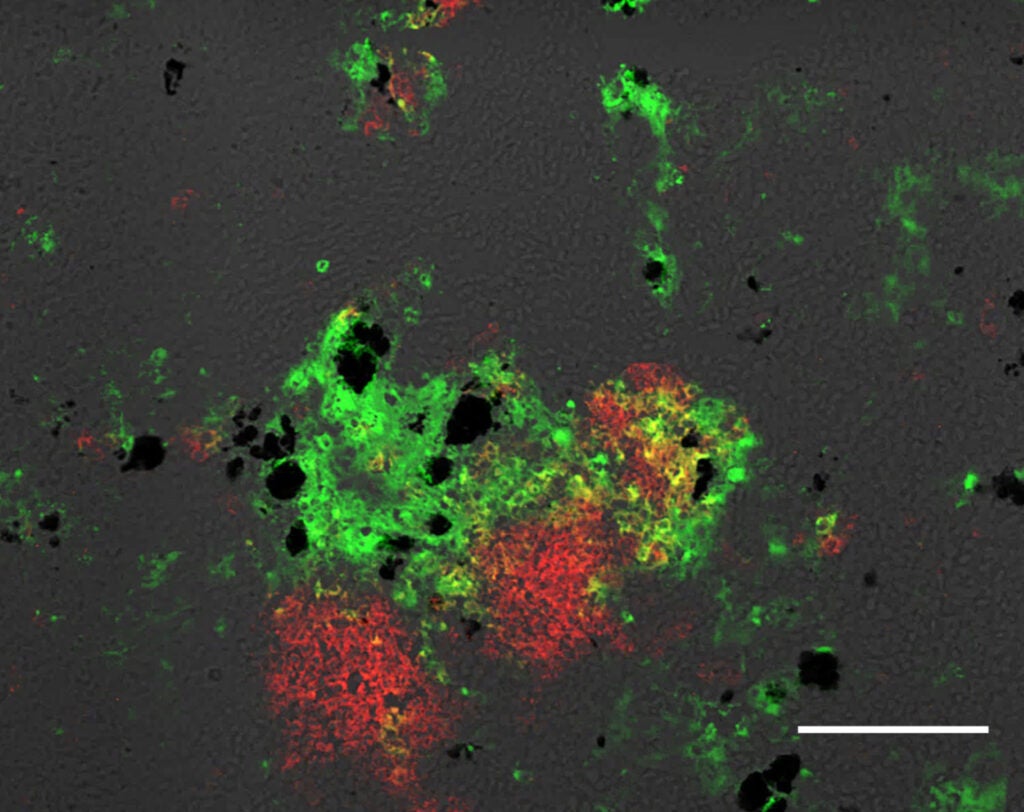
Scientists at the University of Pennsylvania’s School of Veterinary Medicine Shed New Light on the Evolution of Adaptive Immunity in Cold-Blooded Vertebrates
[December 1, 2023; Philadelphia, PA] – Upon infection or immunization, all jawed vertebrate species generate proteins called antibodies that bind and neutralize pathogens. Strong and long-lasting antibody responses in warm-blooded…
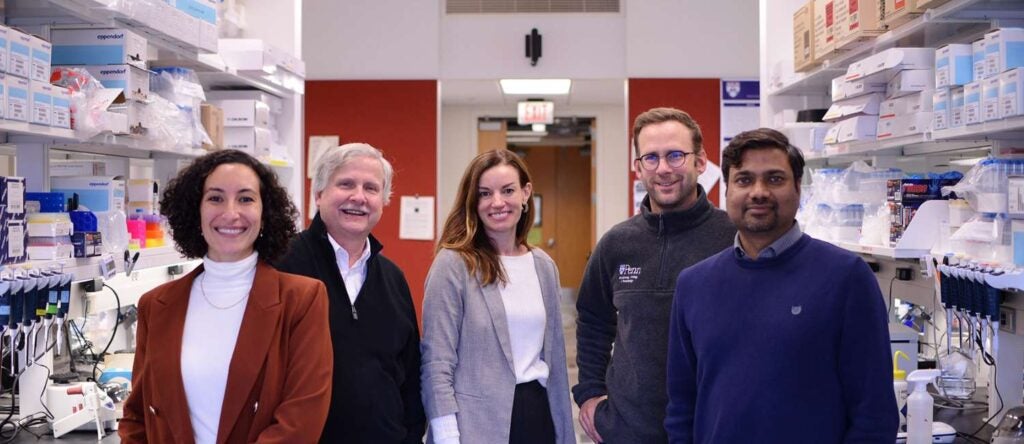
Uncovering the role of skin microbiome and immune response in cutaneous leishmaniasis (link is external)
Two new studies led by Phillip Scott of the School of Veterinary Medicine and Elizabeth Grice of the Perelman School of Medicine demonstrate how bacteria found in leishmaniasis skin lesions…

Study shows promise for iNKT cell platform to treat cancer (link is external)
Researchers from the School of Veterinary Medicine and Perelman School of Medicine have shown that invariant natural killer T cells from a healthy donor can persist in MHC-mismatched canines, demonstrating…
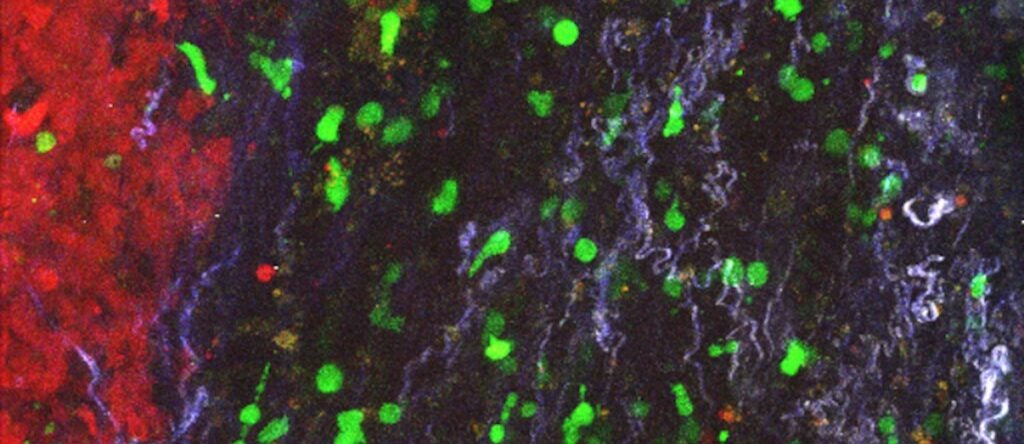
Removing the barrier surrounding solid tumors clears path for T cells (link is external)
Penn researchers uncover a new way to target solid tumors. Using CAR T cells to remove cancer-associated fibroblasts surrounding pancreatic tumors allows T cells to infiltrate and attack the tumor…
Sort By
- Research Laboratories (1)
- ASMG Laboratory - Microbial Genomics (2)
- Lengner Laboratory (3)
- New Bolton Center PADLS (3)
- Anguera Laboratory (4)
- Wang Laboratory (5)
- Puré Laboratory (1)
- Ortved Orthopedic Regenerative Medicine Laboratory (4)
- Wolfe Laboratory (1)
- Dou Laboratory (3)
- Lennon Mucosal Immunology Laboratory (1)
- Brinster Laboratory of Reproductive Physiology (2)
- Equine Pharmacology Research Laboratory (5)
- Hunter Laboratory (4)
- Sunyer Laboratory (3)
- Harty Laboratory (3)
- Mason Immunotherapy Research Laboratory (3)
- Sylvia M. Van Sloun Laboratory (1)
- Scott Laboratory (1)
- Sasaki Laboratory (1)
- Vaughan Laboratory (1)
- Modzelewski Laboratory (1)
- Research Institutes (14)
- Research Programs (1)
- Research Centers (1)
- Research Cores (2)
